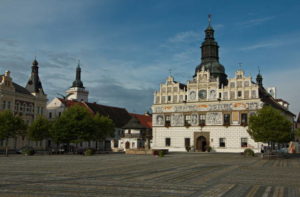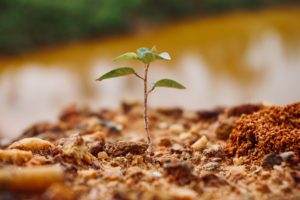My Wish for 2023

King Charles talked in his first Christmas message to the British public about his mother’s faith in people. She had, he said, a belief in the extraordinary ability of each person to touch, with goodness and compassion, the lives of others, and to shine a light in the world around them.
This is the world I want to live in – and for my children and grandchildren to be a part of.
To create a world where people care about each other, and our communities are more important than profit and having “stuff”, we must fight.
Each of us needs to be part of that public struggle. For this to happen each of us must take a stand and fight for it publicly. We must do it now.
Please think in 2023 how you can help others act on Climate Change and the huge threat to Biodiversity. If enough of us dream of how we want our world to be and we all act we can make a difference.
Working in a Community Works Better for Everybody

Here is a story I wrote about someone living in that new future that will hopefully get you thinking of how you would like things to be.
I sat in my local café happily sipping a lemonade, reflecting on how our world had changed for the better. The room was noisy, but the sound was the sound of laughter and animated conversation. In the background, there were the excited voices of children playing outside under the trees. The café was busy with local people who had walked there to meet their friends. There were no cars in the streets. In fact, there hadn’t been cars or buses in the street for ten years.
I watched my mother, who was sitting opposite me, with a secret thrill of happiness to see her breathing normally. Her skin was a natural healthy colour, and the bronchitis that had plagued her for many years seemed to have gone with the traffic.
She supped her tea thoughtfully and told me how happy she was with all the changes in our neighbourhood. She was delighted with the wonderful open park for the children, with benches for neighbours to sit and talk to each other, and the shops with everything she needed close by. She especially loved the fact that she was no longer lonely. She could come and sit in the park or the café any time she felt like it. There was always somebody to talk to, and if she wanted to she could take a free bus from nearby to the main shops in town.
As for me, I loved the new layout of our town. Cars were banished to the outskirts, and it had become an active community. We had clean energy. Our houses were insulated so there were no more freezing winters spent huddled round a fire avoiding the draughts. The Local Council changed it all quite suddenly some time ago after a long series of heatwaves, droughts and flooding throughout the world. People had finally rebelled. They started to come out into the streets in their thousands – and eventually millions – to complain that governments were not doing what was required. Too little was being done to protect them or the futures of their children and grandchildren. They demanded changes.

We already had all the technology we needed to make those changes. All that was necessary was for governments to wholeheartedly commit to making them. And they did. The differences came slowly at first. But once manufacturing companies and investors saw that governments were serious, the changes came hard and fast. We realised that we must change too, that we could not have endless possessions and a functioning planet. We saw that happiness came from life in community and with our families and friends. We understood finally that we needed nature and that the loss of it would be terrible.
As I drank my lemonade and enjoyed the hubbub of conversation round about me, I realised that my world had altered for ever. Globally the transformation has been enormous. Rich country administrations agreed to pay to help developing countries adapt to Climate Change. We recognized that we had a responsibility to do that. So, we did, and those countries responded with openness. Suddenly we had dialogue and discussion about what they really needed. We worked together to help repair their damaged soils and environment and to increase their agricultural productivity. We helped them replace their dirty coal and oil with wind and wave power. The Fossil Fuel companies fought back but their power had been weakened.
The results of all those changes were quite remarkable. Over a period of about five years more food became available to struggling families.

The terrible famines we had seen in Somalia and in other parts of sub-Saharan Africa eased. In spite of the droughts the soils improved, and the new young trees that were planted helped retain any water there was. The farmers started to grow other crops under the trees, and to sell those at market. This meant a little more money was available for food and educating the children. Farmers in many areas started to believe they had a future in their own countries. Thus the flow of refugees, especially from Africa slowed.
We supported the South Pacific islanders whose countries were threatened by rising sea levels. We did this by using nature. We planted mangrove swamps and sea grass which helped raise the height of the land and protect it from storm surges. This improved the situation except in the very worst cases. We provided renewable energy sources for those that had never had energy for cooking or lights for students to study at night. We raised finance for many people whose countries were just too poor to provide for their citizens.
The miracle was that the more we helped, the more we realised that this was what life was about, and the more we forgot about our First World worries. The more we did this, and the more we understood other people’s problems, the happier we and they became.
We started to elect better politicians. Wise men and women who understood and cared about the threats to our world. They were people who in their wisdom had a vision about where we were heading. They also had the courage to stand up for it.
As I finished my lemonade, I thought about the global government we were in the process of electing, and the laws we were passing to ensure the big multinational companies paid their fair share of taxes. I knew this would allow developing countries to educate their children. My mind wandered to the roads they could build for their farmers to take their goods to market. And I thought of the girls who would be schooled and grow up to be the doctors and teachers their countries so desperately needed.

I smiled to myself as I thought about the re-wilding projects that governments around the world had instigated. The planting of millions of trees had helped slow the loss of biodiversity. At the same time it was saving many tons of topsoil that would have been washed away. The money given to farmers to help Nature was encouraging the return of birds and pollinating insects. Our world was beginning to sound like it had before. With the encouragement and financial aid for farmers our food was finally beginning to taste like it should and to stop making us sick.
It was time for me to collect my children, say goodbye to my mother and go home. I could have spent a lot longer thinking about our new world and the positive changes we had made. There were so many of them and they had changed all our lives for the better.
Of course, we had left it too long to make these changes. Our planet’s weather had changed for the worse and some land could not be saved. We had many refugees who would never see their homelands again, and we were all financially poorer than before. But people were more contented, and children had stopped fearing for their future.
That had to be worth a lot.
(Photographs above are 1. Christmas Tree by Kieran White on Unsplash, 2. by “My Life Through A Lens” on Unsplash, 3. Main square in Stribpolzen, 4. by Yahrin Seth om Unsplash, 5. by Gabriel Gurrola on Unsplash)

What a wonderful story Doreen.
Thank you Patsy. I hope you are all well there x
An interesting, thought provoking piece. Thank you Doreen. Particularly the comments about helping countries e.g. financially, so that their citizens do not feel the only way they can provide for themselves and their families is to leave and travel elsewhere.
Thank you Caroline. I do feel that people want to stay in their own countries (in general) and only leave when they really can’t cope. (I know the situation of economic migrants is slightly different.) What makes me so very cross is that politicians don’t seem to see that in the future we are going to be overrun by refugees because of climate change and its effects. They are piddling around with a few poor refugees (and I know it is not just the UK), trying to send them to Ruanda or whatever when what we need to do is have some vision and address the real problem.
Sorry! must try not to rant!